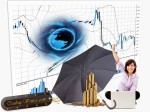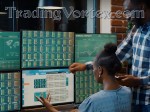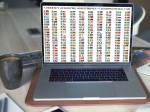Table Of Contents:
- Introduction to Geopolitical Events and Their Impact on Trading:
- Understanding Geopolitical Events:
- Impact on Financial Markets – Navigating the Geopolitical Rollercoaster:
- Analyzing Geopolitical Risks – Your Trader's Guide to Navigating Uncertainty:
- Case Studies of Geopolitical Impact on Trading:
- Strategies for Traders During Geopolitical Events:
- Tools and Resources for Tracking Geopolitical Events:
- Conclusion – Navigating the Trading Seas Amid Geopolitical Storms:
Introduction to Geopolitical Events and Their Impact on Trading:
Hey there, fellow traders and investors! Whether you're a seasoned market veteran or just dipping your toes into the vast ocean of trading, there's one thing we can all agree on: the markets are anything but predictable. And if there's one wild card that can turn the tides faster than you can say "bull market," it's geopolitical events.
Overview of Geopolitical Events and Trading:
Let's kick things off with a little story. Picture this: It's late 2016, and I'm glued to my screen, watching the U.S. presidential election unfold. The market is on edge, and so am I. As the results start rolling in, I can practically see the Dow Jones doing the cha-cha. The outcome? A market rollercoaster that no one could have fully anticipated. And that, my friends, is the raw, unpredictable power of geopolitical events in action.
From elections and conflicts to trade wars and international treaties, geopolitical events are like the unruly toddlers of the financial world: chaotic, unpredictable, and capable of causing quite a mess. But here's the thing: understanding how these events impact trading isn't just about bracing for impact. It's about spotting opportunities, managing risks, and staying ahead of the curve.
Importance of Understanding Geopolitical Impact on Markets:
Now, why should you care about how geopolitical events affect the markets? Simple. Because these events can turn your trading strategy on its head. A sudden conflict can send oil prices soaring, a trade war can tank entire sectors, and a major election can shift market sentiment overnight. If you're not paying attention, you might find yourself caught in the storm without an umbrella.
Knowing how to navigate these turbulent waters isn't just a skill – it's a necessity. Think of it like this: If the market is a complex chess game, then geopolitical events are the unexpected moves that can put your king in check. By understanding these moves, you can better position your pieces, anticipate threats, and even find new paths to victory.
Objective of the Article:
By the end of this journey, you'll not only have a clearer picture of the intricate dance between geopolitics and trading, but you'll also be better equipped to navigate the ups and downs with confidence and finesse. So, grab your coffee, settle in, and let's decode the fascinating world of geopolitical events and their undeniable impact on the markets together.
Ready to ride the wave? Let's dive in!
Understanding Geopolitical Events:
Alright, friends, let’s roll up our sleeves and dive into the heart of what makes the market tick in ways you might not always anticipate: geopolitical events. These are the seismic shifts that can send shockwaves through the financial landscape. Knowing what these events are and how they play out can give you an edge that separates the savvy traders from the rest.
Definition and Types of Geopolitical Events:
First things first – what exactly do we mean by "geopolitical events"? Think of them as major occurrences in the global arena that stem from the interplay of political, economic, and social factors. These events can send ripples, or sometimes tidal waves, through markets. Here are the big players:
- Elections: Elections are like the Super Bowl of geopolitics. They happen regularly, they're highly anticipated, and they can produce surprising outcomes. Take the 2016 U.S. Presidential Election, for instance. The market's reaction to Trump's victory was swift and unexpected, with futures plunging overnight only to rally spectacularly in the days following. Elections can lead to significant policy shifts, impacting sectors differently depending on the winning party’s agenda.
- Conflicts and Wars: Conflicts and wars are the dark horses of geopolitical events – unpredictable and often devastating in their market impact. Just think about the recent tensions between Russia and Ukraine. Such events typically lead to spikes in commodity prices, especially oil and gas, as supply chains are disrupted and uncertainty looms large. On the flip side, defense stocks might see a boost as countries ramp up military spending.
- Trade Wars and Sanctions: Trade wars and sanctions are like the cold wars of the economic world. They’re about imposing tariffs, restricting imports, and punishing countries for political reasons. The U.S.-China trade war is a textbook example. It saw tariffs on billions of dollars' worth of goods, leading to increased costs for businesses and consumers alike, and it created a rollercoaster ride for markets as negotiations swung between optimism and breakdown.
- International Treaties and Agreements: Then we have international treaties and agreements – the peacekeepers of geopolitics. These can open new markets, reduce tariffs, and promote stability. NAFTA, and its successor, the USMCA, reshaped trade relations in North America, providing more certainty and fostering closer economic ties. The impact? More stable and predictable trading environments, although the negotiation process itself can cause quite the stir.
Historical Examples of Major Geopolitical Events:
To truly grasp the impact of these events, let's walk through some historical examples that shook the markets in memorable ways.
- The 2016 US Presidential Election: I still remember that night vividly. As the votes were counted and it became clear that Trump was winning, market futures plummeted. Traders braced for a historic sell-off, but by the next morning, the narrative had flipped. Promises of tax cuts and deregulation sparked a bullish run. This case perfectly illustrates how quickly market sentiment can pivot in response to political outcomes.
- Brexit: Brexit was another geopolitical earthquake. The 2016 referendum saw the UK voting to leave the European Union, sending the British pound into freefall. The uncertainty around the exit terms created prolonged market volatility, affecting not just the UK, but European and global markets as well. For traders, it was a masterclass in navigating prolonged geopolitical uncertainty.
- US-China Trade War: The US-China trade war, which kicked off in earnest in 2018, was a saga of tariffs, retaliations, and tense negotiations. Markets reacted to every tweet and headline, with sectors like technology and agriculture caught in the crossfire. Companies had to reassess supply chains and costs, leading to significant market swings and creating both risks and opportunities for traders.
Understanding these events isn't just about knowing the facts; it's about anticipating the market's emotional response. It's about reading between the lines of headlines and recognizing the potential for both risk and opportunity. So, stay informed, keep your strategies flexible, and remember, in the world of trading, knowledge truly is power.
Impact on Financial Markets – Navigating the Geopolitical Rollercoaster:
Alright, folks, buckle up because we're about to dive into the heart of the matter: how geopolitical events send shockwaves through the financial markets. From stocks to bonds, currencies to commodities, no corner of the market is immune to the ripple effects of global politics. So, grab your coffee and let's break it down.
Stock Markets – Riding the Waves of Uncertainty:
First up, let's talk stocks. When geopolitical storms brew, the stock market is often the first to feel the impact. Here's how:
- Short-term Volatility: Picture this: tensions flare up in the Middle East, and suddenly, the Dow Jones is doing the cha-cha. Geopolitical events can trigger rapid price swings as investors scramble to reassess risk.
- Long-term Trends: But it's not all about the short-term chaos. Geopolitical shifts can also reshape long-term market trends. A trade war might reshape supply chains, while a peace treaty could open up new markets for growth.
- Sector-Specific Effects: Different sectors can be hit in different ways. A conflict in the Middle East might send oil stocks soaring, while tech companies might feel the pinch of trade tensions with China. Understanding these sector-specific effects is key to navigating the storm.
Forex Markets – Where Currencies Dance to the Beat of Politics:
Now, let's talk currencies. The forex market is like the wild west of trading, and geopolitical events are its unpredictable sheriff.
- Currency Fluctuations: Geopolitical events can send currencies on a wild ride. A political crisis might cause a currency to plummet, while a successful election might boost investor confidence and drive up its value.
- Safe-Haven Currencies: When the going gets tough, investors flock to safe-haven currencies like the US dollar, Swiss franc, or Japanese yen. These currencies act as a refuge in times of uncertainty, offering stability when the rest of the market is in turmoil.
- Emerging Market Currencies: On the flip side, emerging market currencies can be hit hard by geopolitical events. Political instability or economic uncertainty can lead to capital flight, causing these currencies to depreciate rapidly.
Commodity Markets – Riding the Waves of Supply and Demand:
Now, let's talk commodities. Oil, gold, soybeans – you name it, geopolitics can move it.
- Oil and Gas Prices: Geopolitical tensions in major oil-producing regions can send shockwaves through the energy markets. A conflict in the Middle East might disrupt oil supplies, causing prices to spike overnight.
- Precious Metals (Gold, Silver): When the world feels uncertain, investors turn to precious metals like gold and silver as a safe haven. These shiny commodities have long been seen as a hedge against geopolitical turmoil, offering stability in turbulent times.
- Agricultural Commodities: Even agricultural commodities aren&39;t immune to geopolitical events. Trade tensions can disrupt supply chains, while extreme weather events or political instability in major producing regions can drive up prices.
Bond Markets – The Safe Harbor in the Storm:
Last but not least, let's talk bonds. When the stock market is in turmoil, investors often seek refuge in bonds.
- Government Bonds: Government bonds are like the rock-solid anchor in a stormy sea. When geopolitical events send shockwaves through the market, investors flock to the safety of government bonds, driving up prices and lowering yields.
- Corporate Bonds: Corporate bonds, on the other hand, can be more sensitive to geopolitical risk. A major political crisis could lead to downgrades or defaults, sending shockwaves through the corporate bond market.
- Yield Curves and Interest Rates: Geopolitical events can also influence yield curves and interest rates. A flight to safety might flatten the yield curve, while expectations of economic instability could lead central banks to cut interest rates to stimulate growth.
So there you have it, folks – the impact of geopolitical events on the financial markets, decoded. From stocks to bonds, currencies to commodities, understanding how global politics shape market dynamics is key to staying ahead of the curve. So keep your eyes on the headlines, stay nimble in your trading strategy, and remember, in the world of trading, knowledge truly is power.
Analyzing Geopolitical Risks – Your Trader's Guide to Navigating Uncertainty:
Alright, my fellow market adventurers, it's time to don our detective hats and delve into the art and science of analyzing geopolitical risks. Understanding these risks is crucial for making informed trading decisions and staying ahead of the curve. Let's break it down into practical steps and strategies.
Risk Assessment Tools and Techniques:
When it comes to assessing geopolitical risks, there's no one-size-fits-all approach. It’s a bit like piecing together a jigsaw puzzle. Here are the key tools and techniques to have in your trader’s toolkit:
1. Political Risk Analysis:
Political risk analysis is all about understanding the likelihood and potential impact of political events on markets. This involves:
- Monitoring Political Developments: Keep an eye on elections, policy changes, and international relations. News outlets, political analysis platforms, and government reports are your go-tos here.
- Evaluating Stability: Assess the political stability of countries. Stable governments tend to create more predictable market environments, while instability can lead to sudden market movements.
- Scenario Planning: Imagine different political scenarios and their potential market impacts. For example, what would happen if a certain candidate wins an election or if a trade agreement falls through?
2. Economic Indicators:
Economic indicators are the bread and butter of risk assessment. They provide tangible data on a country’s economic health. Key indicators include:
- GDP Growth Rates: Indicates economic performance and potential market growth.
- Inflation Rates: High inflation can signal economic instability.
- Unemployment Rates: High unemployment can lead to social unrest, affecting market stability.
- Trade Balances: Surpluses or deficits in trade can impact currency values and economic health.
3. Sentiment Analysis:
Sentiment analysis goes beyond hard data, capturing the mood and expectations of investors and the public. It involves:
- Social Media and News Analysis: Tools like sentiment analysis software can scan social media and news articles to gauge public sentiment.
- Market Sentiment Indicators: Look at market indicators like the Volatility Index (VIX), which reflects investor sentiment and market risk.
- Surveys and Reports: Investor sentiment surveys and economic outlook reports provide insights into collective market attitudes.
Incorporating Geopolitical Analysis into Trading Strategies:
Once you've assessed the risks, the next step is integrating this analysis into your trading strategies. Here’s how to do it effectively:
1. Fundamental Analysis:
Fundamental analysis involves evaluating the intrinsic value of assets based on economic and financial factors. When factoring in geopolitical risks:
- Assess Company Exposure: Look at how companies are exposed to geopolitical risks. For instance, a company heavily reliant on exports to a politically unstable region may face significant risks.
- Industry Impact: Consider how geopolitical events affect entire industries. For example, defense stocks might benefit from increased military spending during times of conflict.
- Economic Health: Integrate economic indicators into your fundamental analysis to gauge how broader economic conditions, influenced by geopolitical events, impact asset values.
2. Technical Analysis
Technical analysis focuses on price patterns and market trends. Incorporate geopolitical analysis by:
- Identifying Breakouts and Patterns: Geopolitical events can trigger breakouts and new market trends. Watch for technical signals that align with geopolitical developments.
- Using Indicators: Apply technical indicators like moving averages and relative strength index (RSI) to identify market reactions to geopolitical news.
- Setting Stop-Losses: Use stop-loss orders to manage risk during volatile geopolitical periods. This helps protect your investments from sudden market swings.
3. Sentiment Analysis
Sentiment analysis in trading strategies involves:
- Market Mood Monitoring: Continuously monitor market sentiment using tools like the VIX and social media sentiment trackers. Adjust your trading positions based on shifts in sentiment.
- Event-Driven Trading: Trade based on major geopolitical events. For example, you might go long on gold during times of increased geopolitical tension, as it’s traditionally seen as a safe-haven asset.
- Contrarian Strategies: Sometimes, going against the prevailing sentiment can be profitable. If market sentiment is overly pessimistic due to geopolitical fears, there might be buying opportunities in undervalued assets.
So there you have it – your guide to analyzing geopolitical risks like a pro. It's all about staying informed, being flexible, and using a combination of tools and strategies to navigate the market's choppy waters. Remember, while we can’t predict the future, being prepared can make all the difference. Happy trading, and may your portfolio weather any storm!
Case Studies of Geopolitical Impact on Trading:
Alright, friends, let's roll up our sleeves and dive into some real-world examples of how geopolitical events have shaken up the markets. These case studies will help us understand the profound impact such events can have on trading and investing. Buckle up – it's going to be an enlightening ride.
Impact of the 2022 Russia-Ukraine Conflict on Global Markets:
Remember the morning of February 24, 2022? I was sipping my coffee, eyes glued to the news. Russia had just invaded Ukraine, and the ripple effects on the global markets were immediate and severe.
- Commodity Markets in Turmoil: The first shockwave hit the commodity markets. Oil prices skyrocketed past $100 a barrel, levels we hadn't seen in years. Natural gas prices in Europe surged as fears of supply disruptions gripped the continent. For those of us holding energy stocks, it was a windfall, but for industries dependent on oil and gas, costs soared, eating into margins.
- Agricultural Commodities: Ukraine, often called the breadbasket of Europe, saw its grain exports plummet. Wheat and corn prices spiked, leading to increased costs for food producers worldwide. I remember discussing with a fellow trader how even small farmers were feeling the pinch, having to navigate the volatile market conditions.
- Stock Market Volatility: The conflict sent stock markets into a tailspin. The MSCI World Index, which tracks global equities, saw significant drops as investors scrambled to move their money into safer assets. Defense stocks, however, saw gains as countries ramped up their military spending.
- Currency Fluctuations: The Russian ruble tanked due to sanctions, while the US dollar and Swiss franc strengthened as safe-haven currencies. For forex traders, it was a period of intense activity, trying to capitalize on the rapid currency movements.
Effect of the US-China Trade War on Different Sectors:
Let's rewind a bit to 2018, when the US-China trade war was in full swing. It felt like every other day brought a new tariff announcement or a tweet that sent the markets on a rollercoaster ride.
- Tech Sector in the Crossfire: Tech companies, particularly those with supply chains intertwined with China, were hit hard. Remember when Apple’s stock took a hit because of tariff concerns on Chinese-manufactured goods? Companies like Qualcomm and Intel, deeply embedded in the Chinese market, faced significant uncertainty. I recall strategizing with a colleague on how to hedge our tech investments during this period of volatility.
- Agriculture's Uncertain Future: US soybean farmers found themselves at the sharp end of Chinese retaliatory tariffs. Prices dropped, and many farmers struggled to find alternative markets. It was a stark reminder of how interconnected and vulnerable agricultural markets are to geopolitical strife.
- Manufacturing and Industrials: The tariffs on steel and aluminum affected numerous sectors, from automotive to construction. Companies faced higher input costs, which they struggled to pass on to consumers. Some firms, anticipating long-term trade disruptions, began moving their supply chains out of China, which was a costly and complex process.
- Market Sentiment: The trade war also impacted overall market sentiment. Periods of negotiation breakdowns led to sharp declines in the stock market, while positive news on trade talks would spur rallies. It was a real-time lesson in how geopolitical negotiations can swing market sentiment dramatically.
Influence of Brexit on European Markets:
Ah, Brexit. The gift that kept on giving for market volatility from 2016 right through the transition period. When the UK voted to leave the EU, it set off a chain of economic and political reactions.
- Currency Markets: The British pound was the immediate casualty, plummeting against the dollar and euro as uncertainty took hold. I remember a conversation with a forex trader friend who capitalized on the pound's volatility, navigating through the turbulent market conditions with nimble trades.
- Stock Markets: UK equities, especially financials and real estate stocks, took a hit as fears of London losing its status as a financial hub grew. Conversely, some exporters benefited from a weaker pound, which made their goods cheaper overseas.
- Trade and Investment Uncertainty: Businesses across Europe faced uncertainty about trade terms. Auto manufacturers like BMW and Nissan, with significant operations in the UK, had to rethink their supply chains and investment plans. This uncertainty led to fluctuating stock prices and investment hesitancy.
- Long-term Economic Impact: The prolonged uncertainty of Brexit negotiations had a dampening effect on investment and growth in the UK and parts of Europe. The constant back-and-forth of deal negotiations kept markets on edge, making it a challenging environment for long-term planning.
These case studies underscore the profound and far-reaching impacts geopolitical events can have on financial markets. Each event brings its own set of challenges and opportunities, reminding us that in the world of trading, staying informed and adaptable is key. Whether it's the immediate shock of conflict or the prolonged uncertainty of trade wars and political upheavals, understanding these dynamics helps us navigate and even capitalize on the ever-changing market landscape. Happy trading, and may your strategies be ever resilient!
Strategies for Traders During Geopolitical Events:
Alright, my fellow market enthusiasts, let’s talk strategy. When geopolitical events hit the headlines, they can send markets into a frenzy. But with the right game plan, you can not only protect your investments but also find opportunities amid the chaos. Here’s how to navigate these turbulent waters like a pro.
Diversification and Risk Management:
First and foremost, let’s talk about playing defense. Diversification and risk management are your best friends during uncertain times.
1. Asset Allocation:
Think of asset allocation as spreading your bets. Don’t put all your eggs in one basket, especially when geopolitical events can cause sudden market swings.
- Equities, Bonds, and Commodities: Diversify across asset classes. Equities might take a hit during a crisis, but bonds or gold often perform well as safe-haven assets.
- Geographic Diversification: Don’t just stick to domestic markets. Investing in international markets can help mitigate risks if a geopolitical event is region-specific.
2. Hedging Strategies:
Hedging is like insurance for your portfolio. It might cost a bit, but it can save you from bigger losses.
- Options and Futures: Use options and futures to hedge against potential downturns. For instance, buying put options on a stock you own can protect you if the stock price falls.
- Inverse ETFs: These funds are designed to move opposite to the market, providing a buffer against declines.
3. Stop-Loss Orders:
Setting stop-loss orders is like setting a safety net for your trades. It’s a way to limit your losses if the market moves against you.
- Automatic Triggers: Set stop-loss orders at levels where you’re willing to cut your losses. It takes the emotion out of selling during a panic.
- Trailing Stops: Use trailing stops to lock in gains while still protecting yourself from sudden drops.
Identifying Opportunities in Volatile Markets:
While everyone else is panicking, savvy traders see opportunities. Here’s how to spot them.
1. Trading Safe-Haven Assets:
Safe-haven assets are like the calm in the storm. Investors flock to them during crises, and you can benefit from this trend.
- Gold and Silver: Precious metals often rally when uncertainty is high. Keep an eye on gold prices during geopolitical tensions.
- Currencies: The Swiss franc and Japanese yen are traditional safe-haven currencies. Trading these can provide stability when other markets are volatile.
2. Sector Rotation:
Not all sectors are affected equally by geopolitical events. Rotating your investments can help you capitalize on these differences.
- Defense Stocks: During conflicts, defense and aerospace stocks often see a boost.
- Utilities and Consumer Staples: These sectors are considered defensive because they provide essential services and goods that people need regardless of the economic climate.
3. Short Selling:
If you believe a market or sector is going to decline due to geopolitical events, short selling can be a profitable strategy.
- Betting on Decline: Short selling involves borrowing shares to sell them at the current price, hoping to buy them back at a lower price later.
- Inverse ETFs: Another way to short the market without the complexities of borrowing shares is through inverse ETFs, which increase in value when the market declines.
Long-term Investment vs. Short-term Trading:
Now, let’s weigh the merits of playing the long game versus making short-term moves.
1. Benefits of Long-term Investment:
Staying invested for the long haul can smooth out the bumps caused by geopolitical events.
- Market Resilience: Historically, markets tend to recover from geopolitical shocks. Staying invested means you can ride out the volatility.
- Compounding Returns: Long-term investments benefit from compounding, which can significantly increase your returns over time.
2. Advantages of Short-term Trading:
For those who thrive on the thrill of the market, short-term trading during geopolitical events can be exciting and profitable.
- Capitalizing on Volatility: Short-term traders can take advantage of the increased volatility that often accompanies geopolitical events.
- Quick Adjustments: Short-term trading allows for rapid response to market news and events, providing opportunities to profit from sudden price movements.
So there you have it – strategies to help you navigate the stormy seas of geopolitical events. Remember, while these events can bring uncertainty, they also offer unique opportunities for those who are prepared and adaptable. Stay informed, stay flexible, and keep your cool. Happy trading, and may your strategies be as resilient as your spirit!
Tools and Resources for Tracking Geopolitical Events:
Hey there, fellow traders! When geopolitical events make the headlines, staying informed and analyzing the potential impacts on the markets is crucial. While relying on external resources is common, let’s focus on internal strategies and tools that can help you navigate these turbulent times effectively.
Creating a Comprehensive News Network:
Staying updated on geopolitical events requires a robust news network that you can build and maintain yourself.
1. Daily News Digest:
Compile a daily digest from a variety of news sources to get a balanced view of global events.
- Curate News Feeds: Use RSS feeds to collect news from different financial and geopolitical websites. This allows you to quickly scan headlines and identify important events.
- Summarize Key Points: Create summaries of key geopolitical events and their potential market impacts. This practice not only keeps you informed but also helps you analyze trends over time.
2. Peer Networks:
Leverage your network of fellow traders and investors to stay informed.
- Discussion Groups: Join or create discussion groups with other traders. Sharing insights and analysis can provide different perspectives on how geopolitical events might affect the markets.
- Regular Meetings: Schedule regular meetups or virtual meetings to discuss recent geopolitical events and market conditions. Collaborative discussions often lead to deeper insights.
Utilizing Internal Analytical Tools:
Incorporate analytical tools and techniques that you can use independently to evaluate geopolitical risks and their impacts on the market.
1. Economic Indicators:
Track and analyze economic indicators to understand the broader economic context.
- GDP and Trade Data: Monitor GDP growth rates and trade balances of major economies. These indicators can provide early warnings of economic shifts influenced by geopolitical events.
- Inflation and Employment Rates: Keep an eye on inflation and employment rates, which can be affected by geopolitical tensions and policies.
2. Sentiment Analysis:
Analyze market sentiment to gauge the mood of investors and traders.
- Social Media Trends: Monitor social media platforms for trends and discussions about geopolitical events. This can provide real-time insights into market sentiment.
- Market Sentiment Surveys: Conduct or participate in surveys among your trading network to assess the overall sentiment. Understanding whether traders are bullish or bearish can guide your strategies.
Real-time Market Data and Custom Analysis:
Having access to real-time data and conducting custom analyses can significantly enhance your trading decisions.
1. Custom Market Tracking:
Develop your own system for tracking market data and trends.
- Real-time Data Feeds: Set up custom data feeds for real-time tracking of market prices, indices, and commodities. This ensures you have the latest information at your fingertips.
- Personalized Dashboards: Create dashboards to visualize market data. Use tools like spreadsheets or custom software to track key metrics and indicators relevant to your trading strategy.
2. Scenario Planning:
Engage in scenario planning to prepare for various geopolitical outcomes.
- Develop Scenarios: Outline different potential geopolitical developments and their possible market impacts. For example, consider how a conflict might escalate or de-escalate and what that would mean for different asset classes.
- Stress Testing: Conduct stress tests on your portfolio to see how it would perform under different geopolitical scenarios. This helps identify vulnerabilities and areas for adjustment.
Staying informed and prepared during geopolitical events doesn’t have to rely solely on external resources. By building a comprehensive news network, utilizing internal analytical tools, and developing real-time market tracking and scenario planning techniques, you can navigate the complexities of the market with confidence. Remember, the key to successful trading is not just reacting to events, but anticipating them and having a plan in place. Happy trading, and may your strategies be both resilient and adaptable!
Conclusion – Navigating the Trading Seas Amid Geopolitical Storms:
Alright, friends, we've journeyed through the complex and often tumultuous world of geopolitical events and their impact on trading. Let’s wrap this up by tying together the key points, emphasizing the importance of staying informed, and sharing some final thoughts.
Recap of Key Points:
We’ve covered a lot of ground in this article, so let’s briefly revisit the main takeaways:
- Understanding Geopolitical Events: We defined various types of geopolitical events, from elections and conflicts to trade wars and treaties. Each of these can send ripples through the financial markets, affecting everything from stocks to commodities.
- Impact on Financial Markets: We explored how different markets react to geopolitical events, with stock markets experiencing short-term volatility, forex markets seeing currency fluctuations, and commodities like oil and gold often acting as safe havens.
- Analyzing Geopolitical Risks: We discussed the tools and techniques for assessing geopolitical risks, including political risk analysis, economic indicators, and sentiment analysis, and how to incorporate these into your trading strategies.
- Case Studies: We examined specific case studies, such as the Russia-Ukraine conflict, the US-China trade war, and Brexit, to see real-world examples of geopolitical impacts on trading.
- Strategies for Traders: We laid out strategies for managing risk and finding opportunities during geopolitical events, emphasizing diversification, hedging, and both short-term and long-term approaches.
- Internal Tools and Resources: We highlighted the importance of building your own network of news sources, analytical tools, and scenario planning techniques to stay ahead of the curve.
Importance of Staying Informed:
If there’s one golden rule to take away from all this, it’s the necessity of staying informed. Geopolitical events can be unpredictable and their impacts on markets can be swift and significant. Here’s why staying on top of the news and trends is crucial:
- Timely Decisions: Being informed allows you to make timely decisions, whether it’s to protect your investments or to seize new opportunities. The early bird often catches the worm, especially in trading.
- Risk Mitigation: Understanding the geopolitical landscape helps you anticipate risks and take proactive steps to mitigate them. This can mean the difference between sustaining losses and preserving capital.
- Strategic Advantage: Knowledge is power. The more you know about potential geopolitical shifts, the better you can position yourself strategically in the market. This can give you an edge over less-informed traders.
Final Thoughts on Geopolitical Events and Trading:
Trading during geopolitical events is not for the faint of heart. It requires a blend of vigilance, adaptability, and strategic thinking. But with the right approach, it’s possible to navigate these stormy seas successfully.
Remember, while we can’t predict the future, we can prepare for it. Keep your eyes on the news, use the analytical tools at your disposal, and always have a plan. Whether it’s a sudden election result or an unexpected trade war, being prepared will help you stay calm and collected, ready to tackle whatever comes your way.
Personally, I’ve found that the most successful traders aren’t just those who react quickly, but those who plan ahead and stay informed. So, keep learning, stay connected with your network, and never stop analyzing. The markets are a living, breathing entity influenced by countless factors, and geopolitical events are among the most impactful.
In conclusion, the world of trading is dynamic and ever-changing, much like the geopolitical landscape. By understanding the connections and staying prepared, you can turn potential risks into opportunities. Here’s to smart trading and staying ahead of the game. Happy trading, everyone!







































